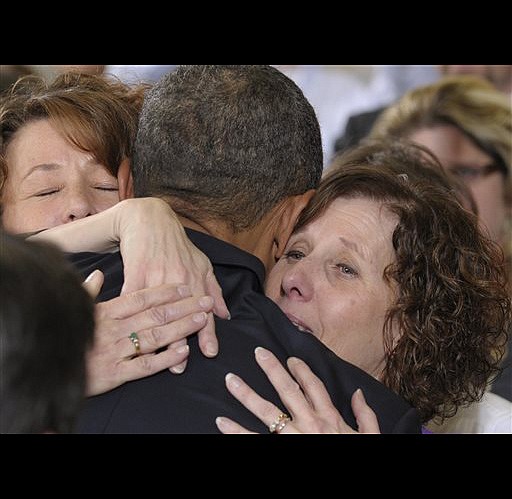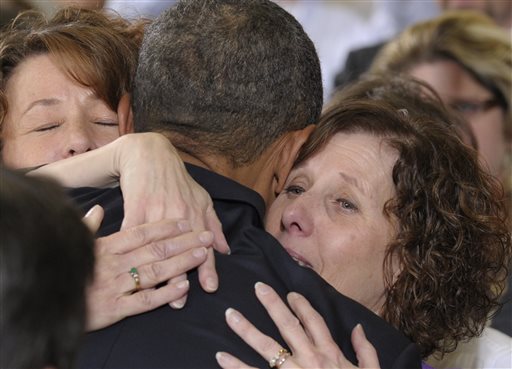Gun enthusiasts frequently claim that gun control is a win-lose situation, that responsible gun buyers would lose under any tightening of gun laws, and criminals would still get all the guns they want. But that is obviously not true.
If gun control laws were made slightly more strict -- say, by closing the private-dealer/gunshow loophole that lets 40 percent of the nation's gun sales occur without a background check -- ordinary gun buyers could still buy all the guns they want. Yet criminals would have a far harder time finding private sellers who would disobey a universal background-check law for private purchases.
Indeed, it is the private-sale loophole that now openly spreads sales and easy access to guns for local criminals, for deranged people who need mental health care, and for gun-runners in states with a private sales loophole who routinely gather guns to sell to criminal dealers in the few states that require background checks for gun purchasers.
Many of the gun sales that originate under the private-sale loophole also go across the southern border to Mexican drug cartels, which is why there are several thousand gun shops near the southern borders of Texas, Arizona and New Mexico.
Most Americans, including many responsible gun owners, have at last realized just how insane it is to routinely allow 40 percent of the nation's gun sales to occur without a legal background check on the buyer. Indeed, recent polls show that 90 percent of Americans now favor closing the private-sales loophole, and requiring a background check for all sales.
Given that finding and the sheer volume of annual gun sales, national sentiment should carry a lot of weight in the current national debate over the Obama Administration's reform agenda on gun control laws. The FBI, for example, reported that there were 16.1 million background checks for gun purchases last year. If 40 percent more were made without background checks, the volume of unreported sales is staggering.
Yet opposition by the gun lobby, as evidenced by the fierce debate over new gun rules in Connecticut into the early hours of Thursday morning, remains a formidable obstacle. Absent the Sandy Hook massacre in which a deranged shooter killed 26 children and adults with 154 shots from a semi-automatic assault rifle in four minutes, it's doubtful that even Connecticut's Legislature would have passed sensible reforms. The changes they did finally adopt include an expansion of an existing assault weapons ban; a ban on sales of magazines that hold more than 10 bullets; a background check on all firearms sales; and establishment of a registry of mental health cases and prompt reporting criteria.
At the top of Obama's admittedly weaker agenda is a proposal to require background checks on all gun sales, whether by gun-store owners or private and online sellers. In fact, that may turn out to be the mainstay of his gun reform proposals, which otherwise involve more improved access by law enforcement agencies to gun sales data and records. Unfortunately, it's already been agreed that the initial bill will not include a proposal to restrict sales of semi-automatic assault rifles and large capacity magazines: Those will be left to be discussed as amendments.
In fact, it's not clear that the administration's legislative agenda will be brought to the floor for debate -- as previously scheduled -- when the Senate returns next week from an Easter recess. The gun lobby remains ferocious in its repudiation of any reasonable or conscionable constraint on gun rights. And too many Senate Democrats are cowering before it.
If any substantive reform of gun rights is to pass, individual Americans will have to sell it to their senators and congressional representatives. President Obama already seems resolved to make universal background checks on gun purchases the main goal of reform, if not the only one. That's not enough to claim substantive reform, but it's a start. If Americans want to shift to a saner path on guns, they will have to call or write their representatives to help push it through.

